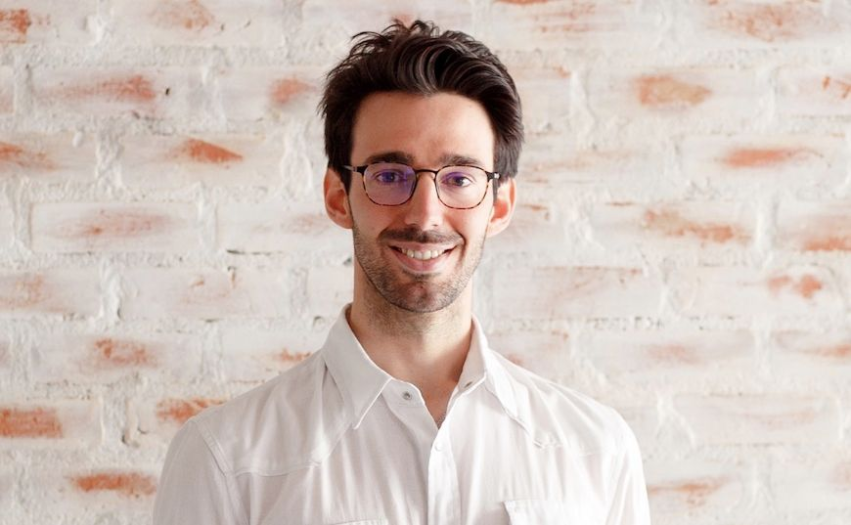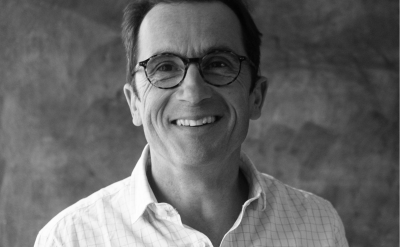News

Maxime Parra (SK 2015) - “A career as an entrepreneur in finance”
It was while studying at SKEMA that Maxime Parra, an alumnus with a passion for finance and marketing, started his first business, New Trading, marking the beginning of an ongoing entrepreneurial adventure. Now living in Brazil, he tells us about his experience at the business school and talks about his 100% entrepreneurial journey in finance.
Can you tell us about your educational background and your professional experience?
After attending a French preparatory school for two years, I decided to continue my studies at SKEMA, on the Sophia Antipolis campus at first and then in Lille. During the second semester of my M1, I specialised in finance with the Master in International Financial Analysis.
Between the two years of the master’s programme, SKEMA allowed students to take a year off to start a business. I jumped at the chance to launch my first company, New Trading, giving people the opportunity to delve more seriously into trading (without any miracle strategies or promises of easy money).
Thanks to my training at SKEMA I was able to obtain a double degree with Université de Lille 2 and develop a dual skill set, in both marketing and finance. Because I had already started my business during my gap year, I continued to run it while studying. After graduating, I continued down the path of entrepreneurship.
Why did you choose to study at SKEMA?
At the time, SKEMA offered a master’s specialising in financial markets. It was very highly rated, particularly in the Financial Times ranking, and the school was one of the top business schools in France for that major.
I also chose a business school because I wanted more than one string to my bow: finance, but also marketing, law and all the subjects taught by the top business schools. When I think about it today, I realise that that is exactly what enabled me to start my business so quickly. Having knowledge in such a variety of fields and a hands-on, highly concrete approach to these different disciplines really helped me.
What were the high points of your studies at SKEMA?
During my time at SKEMA, in M1 I was president of the SKEMA Sophia Antipolis student-run finance association (SKEMA Finance), whose goal is to promote finance and introduce people to it in a concrete way by organising conferences for example. And the following year, during my M2, I continued down that road by presiding over the Fédération Sud Finance, which grouped together all financial student associations from the south of France.
The highly dynamic student associations are really one of the biggest strong points of business schools and of SKEMA in particular, which had over twenty of them focusing on a variety of themes. They’re a really great way to discover entrepreneurship and working life, and to build a network.
Has the network of contacts you developed at SKEMA been helpful on your entrepreneurial journey?
SKEMA actually allows you to network on two levels. On the one hand, by meeting professionals from the world of finance through the student association activities. This gives you a chance to really see what each of them does. And on the other hand, you get to network with the other people involved in the association and with whom you develop projects.
To me, networking is not just an Excel spreadsheet or a rolodex of contacts; it is first and foremost experiences shared with people around a common interest. I actually started New Trading with four business partners who were also SKEMA students at the time.
Pouvez-vous nous parler de vos différentes entreprises ?
Can you tell us about your different businesses:
New Trading, my very first business, which introduces people to trading through an online training course and through talks given at some forty partner campuses
After that I launched my second company, Syntax Finance, a marketing agency specialising in finance and offering consulting, as well as content writing, publishing and translation. As far as I know, we are the first marketing agency in France to specialise in finance and that enables us to meet the very specific needs of our clients. It is thanks to SKEMA that I had the knowledge and legitimacy to create Syntax Finance, which makes use of my dual marketing/finance skill set.
The third company is the Finclub, a website where finance students and industry professionals can interact. It will be launched officially after the summer break. The goal is to have students interview finance professionals who are willing to kindly share their experiences and advice, and then to crystallise this knowledge on the website.
What these three companies have in common is that they all centre on financial communication, through training and teaching with New Trading, through marketing with Syntax Finance, and through information sharing with the Finclub.
So you manage these French companies from Brazil where you are now living?
I moved to Brazil in 2019 for personal reasons and I took the opportunity to internationalise my business activities. For the moment, we are starting to mainly introduce Syntax Finance here in Brazil, and we are also planning to launch New Trading and the Finclub on the Brazilian market soon.
“I saw my move overseas as an opportunity to develop a different business model.”
The company is registered in France, but our business is run completely online, with no physical premises. This was a strategic choice I made right from the start. I wanted to allocate the entire budget to wages and skills rather than office space, which is generally very expensive. We have one employee in Bordeaux, another in Pau and another in Thailand.
When I moved to Brazil, I told myself that there were two ways of looking at things: I could see my move abroad as a nuisance, an obstacle, or I could see it as an opportunity to develop a different business model.
It was a challenge at first, because it takes time to figure it all out. But you realise that when everything is digital, you can automate a lot of time-consuming and repetitive tasks. This frees up company employees to focus on the activities with high added value. It has also allowed us to better withstand the health crisis, because we were already working online. I actually think we must be one of the few companies whose workload increased during that period.
What advice do you have for young SKEMA graduates wanting to take the entrepreneurial path?
My first tip would be to develop a double or even a triple skill set, to offer something that isn’t already available in the marketplace. If you develop skills in just one area, finance for example, you’ll really have to be one of the top people in the field to stand out. The same goes for marketing. But if you have a dual skill set, the number of competitors shrinks right down and you have a greater chance of success.
My second piece of advice would be to minimise the cost of mistakes and the cost of learning when starting your business. In my opinion, wanting to raise seed money and turn to outside investors to start your business when you’re newly graduated is asking for trouble. Any mistakes I made when I was first starting out weren’t very costly, because I had started my companies with my own money, without any help from outside investors and without taking on any debt. I had to learn a lot of different skills (website building, email campaign automation, business accounting, etc.), but I actually enjoyed that.
My third piece of advice would be to keep it simple. When people think about starting a company, they tend to imagine launching the next Facebook or Google right away. But in my experience, you have to start with something very simple, make sure it’s turning a profit, and then gradually complexify it if that is what you want.
Lastly, I think that developing an ecosystem has been a very important element in my companies’ development strategy. For example, if I’d only created an amateur blog that offered training in finance, it would have been difficult to break through. But because the blog is attached to Syntax Finance, which is all about producing marketing and SEO content, I can use these skills to develop New Trading. And as for New Trading and the Finclub, they are a means for me to promote the expertise of our agency Syntax Finance. The synergies are many.
So it is really important to think about the different ventures you want to launch as a single ecosystem. To me, entrepreneurship is about laying down bricks − legitimacy bricks and skill bricks − on things that are rather simple. And after a while, the planets align and that’s when the venture really starts to take off. You have to be resilient, because it takes time. But after 8 years of experience in entrepreneurship, one of the main conclusions I’ve drawn is that there is no such thing as an “overnight success” or in other words a business that you build in one night after having a eureka moment or an innovative idea. In my view, quality and speed of execution, intuition and resilience are the greatest assets of an entrepreneur.
Contact: Maxime Parra (SK 2015)
Interview by lepetitjournal.com for SKEMA Alumni




